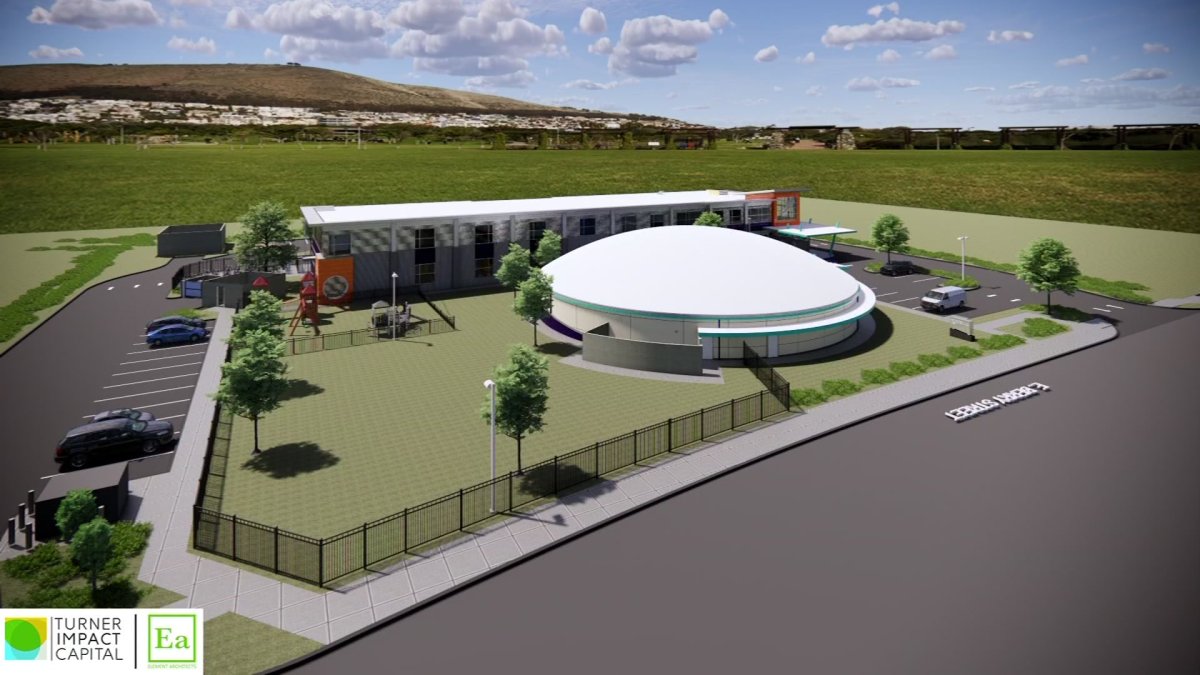
School leaders from Rocketship Public Schools Texas broke ground on their first school in the city’s Stop Six neighborhood. Many are hoping it’s the start of community revitalization. Lili Zheng reports.
A new public charter school in Fort Worth is slated to open in August 2022.
Construction is underway at the future public charter elementary school operated by Rocketship Public Schools Texas. The school will be located at 3520 E. Berry Street in Fort Worth’s Stop Six neighborhood, where a ceremonial groundbreaking was held Wednesday.
SaJade Miller will serve as superintendent of Rocketship Texas. Miller said they will operate with an emphasis on personalized learning and welcome students from all communities through open enrollment. The choice between schooling options has been long needed in Stop Six, Miller said.
“The principals in the six elementary schools that are in the community are doing a phenomenal [job]. They’re working hard to meet the needs of the students, but the reality is we still have a concentration of underperforming schools in this community. As you can see, the demand is quite pronounced,” he said Wednesday.
Get DFW local news, weather forecasts and entertainment stories to your inbox. Sign up for NBC DFW newsletters.
Rocketship Public Schools Texas was approved by the Texas Commissioner and State Board of Education in June 2021 to open public elementary charter schools in Tarrant County. Rocketship Public Schools is based in Redwood City, California with schools established in the Bay Area, Nashville, Milwaukee, and Washington, D.C.
“Nearly 70% of third-graders from disadvantaged families in Tarrant County are not reading on grade level – the vast majority are students of color. If students don’t learn to read by third grade, they can’t read to learn in fourth grade and beyond – putting them at high risk of falling chronically behind. Rocketship Texas is uniquely suited to join the coalition of changemakers working to solve this challenge in Tarrant County. By focusing exclusively on elementary education, our model is designed to help improve the entire system of public education in Tarrant County,” the website states.
Rocketship Texas’ first school in Fort Worth will serve students in grades Pre-K to third grade in its first year and eventually grow to serve through fifth grade. Yolanda Seban, a mother of four, said she plans to send her five-year-old to Rocketship for kindergarten once the school opens.
Local
The latest news from around North Texas.
“It’s like coming into a community who’s thirsty and nobody has ever cared that they have been thirsty in the area of education, wanting better for our children and it’s like someone says “hey would you like ice in this water?” What would you do?” Seban said.
Seban said she didn’t want her son to experience the same challenges some of her older children went through with public schools.
“I have had schools look at me and say, oh nothing is wrong with her. Actually no, her letters were dancing around. That’s dyslexia,” she said, referring to her daughter.
The plan to bring more public charter schools has not come without criticism. Ovidia Molina, president of the Texas State Teachers Association, was opposed during the application process. Opponents have argued allowing more charter operators will drain money from traditional public schools.
“Our stance has always been to support our public schools more. In this case, it was the same,” Molina said. “We have a California-based charter coming into Texas during a pandemic, when we know that our schools who are already underfunded are going to need more funding and you’re taking that away and you’re starting a new business of sorts.”
In response, Miller said the pandemic has exacerbated challenges in education that have needed to be addressed. They want to add to the community, he said.
“So, I think now is just as good as time as any and frankly, we can’t wait,” he said. “Time is precious. Our kids don’t have the luxury of waiting for us to figure it out.”
The two-story elementary school will feature 22 classrooms, two “learning labs” for project-based and collaborative learning, and a separate gymnasium for physical education.